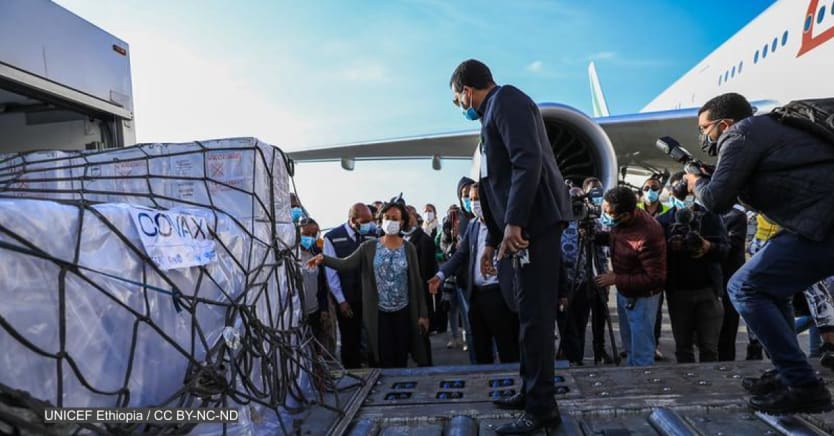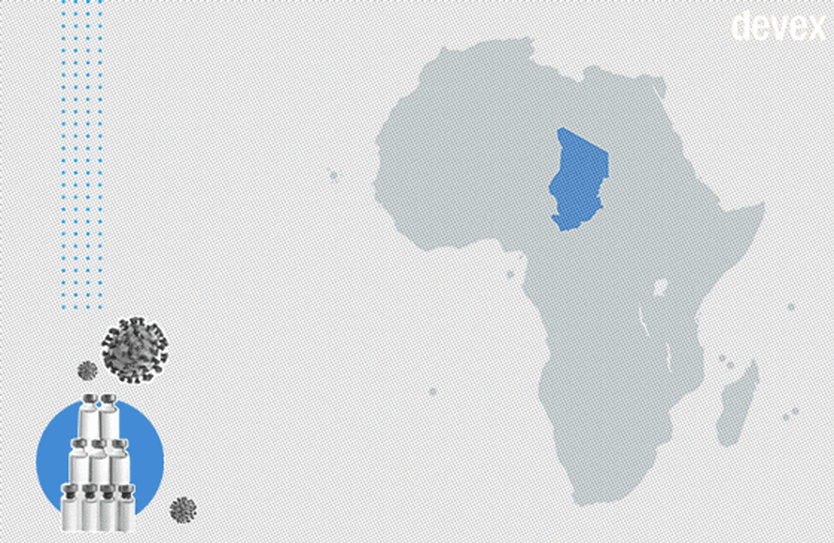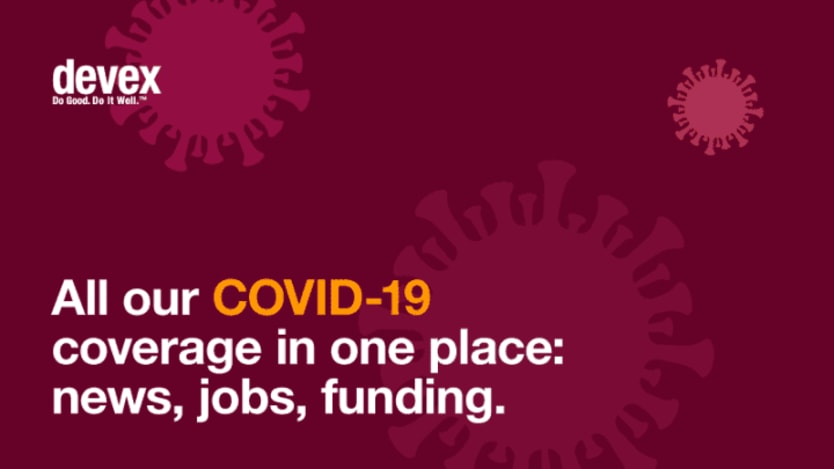Export restrictions in India could stunt Africa's 2021 vaccination goals

India’s recent announcement that it is restricting the export of COVID-19 vaccines means the African continent might not reach the “critical” goal of vaccinating 30% of its population by the end of the year, said John Nkengasong, director at the Africa Centres for Disease Control and Prevention. The move by India is creating uncertainty around when African nations might receive shipments of doses from the COVAX Facility, a global initiative aimed at equitable access to COVID-19 vaccines.
“We are very concerned,” Nkengasong said during a press conference Thursday. “There is absolutely no way … we are going to meet our needs if India delays.”
African nations started receiving free doses of the vaccine developed by AstraZeneca and the University of Oxford from the COVAX Facility in late February, with the expectation that they would receive follow-up shipments in the following months.

In the World Health Organization’s Africa region, 28 countries have already received 16 million doses from COVAX, many of which were produced by the Serum Institute of India. The continent was expecting to receive nearly 75 million doses produced in India from COVAX in the first half of this year, which would vaccinate about 37.5 million people.
But because of the rising number of COVID-19 cases in India, the government put a temporary hold on the export of the vaccine to meet domestic demand. While the institute said that it would continue to supply the COVAX Facility, there is uncertainty around when shipments of doses might arrive in other countries.
If these delays evolve into an outright export ban, it would be “catastrophic” for the continent, Nkengasong said, adding that the Oxford-AstraZeneca vaccine doses are the “backbone” of the vaccination programs across Africa.
While the Africa CDC aims to ultimately vaccinate at least 60% of the continent’s population to achieve herd immunity, the initial goal is to vaccinate at least 30% of the population by the end of this year. About 400 million people need to be vaccinated to reach that goal, Nkengasong said. The COVAX Facility aims to help participating countries reach 20% of their populations by the end of the year, and the African Union is working to fill in the additional gaps with vaccines available for countries to purchase through payment plans.
The delays are deeply problematic, Nkengasong said. There is an urgent need to vaccinate populations quickly and at scale — not only to save lives but also so the coronavirus is not able to mutate in ways that render existing vaccines ineffective.
Last week, scientists said a highly mutated form of the virus was found in three people traveling from Tanzania to Angola, but it is still unclear how this new variant might interact with vaccines. Tanzania has not implemented public health measures or begun to roll out vaccinations to try to stop the spread of the virus, which scientists say gives ample opportunities for mutation.
Countries may stall COVID-19 vaccinations due to Indian export limits
Export restrictions in India have left countries wondering what to do with COVID-19 vaccine doses they've already received from the COVAX Facility.
Helping to “ease the situation” around these delays in vaccine shipments, according to Nkengasong, is a deal signed this week with Johnson & Johnson for up to 400 million doses of its vaccine, which will be available for countries to purchase through the African Union’s African Vaccine Acquisition Trust. The company’s vaccine only requires one dose, whereas the vaccine from AstraZeneca and the University of Oxford requires two.
But the 220 million initial doses from Johnson & Johnson won’t become available until the third quarter of this year, with the rest expected next year. This leaves a several-month gap, putting countries in a state of limbo regarding existing doses supplied by COVAX.
Earlier this week, Antoinette Ba-Nguz, regional immunization coordinator for eastern and southern Africa at UNICEF, said that the situation in India has created a dilemma for these countries about whether to administer all the doses already in their possession now, in the hope that more batches will arrive in time for people to receive their second shots.
Alternatively, each country could vaccinate a smaller group of people than originally planned to ensure enough supplies for the second doses. Ba-Nguz said that even when countries have access to doses, they have been slow to administer them to their populations, which she called “very concerning.”

Search for articles
Most Read
- 1
- 2
- 3
- 4
- 5


